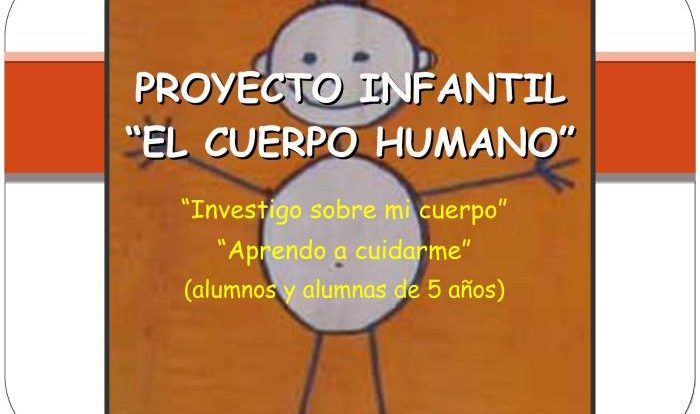Embark on an enlightening journey with the Read 180 Workshop 4 Answer Key. This comprehensive guide unlocks the secrets of this transformative workshop, empowering you to grasp its key concepts and achieve your learning goals.
Delve into the workshop’s purpose, objectives, and the wealth of knowledge it imparts. Discover the engaging activities designed to foster understanding and application, supported by invaluable resources that reinforce your learning.
Workshop Overview: Read 180 Workshop 4 Answer Key
Workshop 4 is designed to help educators understand the fundamentals of Read 180, a comprehensive literacy intervention program. The workshop will cover the key concepts of the program, including its theoretical foundations, instructional components, and assessment system.
Through hands-on activities and discussions, participants will gain a deeper understanding of how Read 180 can be used to effectively address the needs of struggling readers.
Theoretical Foundations
The workshop will begin by exploring the theoretical foundations of Read 180. Participants will learn about the research that supports the program’s approach to reading instruction, including its emphasis on:
- Phonemic awareness
- Phonics
- Fluency
- Vocabulary
- Comprehension
Workshop Activities
The Read 180 Workshop 4 covered a range of activities designed to help participants understand and implement the program effectively.
These activities were closely aligned with the workshop’s objectives, which included:
- Understanding the Read 180 program model
- Learning how to use the program materials
- Developing strategies for implementing the program in the classroom
Activity 1: Program Overview
This activity provided participants with an overview of the Read 180 program model. Participants learned about the program’s goals, components, and research base.
This activity helped participants to understand the overall structure and approach of the Read 180 program, providing a foundation for the subsequent activities.
Finished with the Read 180 Workshop 4 Answer Key? Let’s dive deeper into the captivating story of “The Landlady.” For a visual representation of its key plot points, check out the plot diagram for the landlady . Now, let’s head back to the Read 180 Workshop 4 Answer Key and see how the story’s events unfold.
Activity 2: Using the Program Materials
This activity gave participants hands-on experience with the Read 180 program materials. Participants explored the student workbooks, teacher’s guides, and online resources.
This activity helped participants to develop a working knowledge of the program materials, enabling them to use them effectively in their classrooms.
Activity 3: Implementing the Program
This activity focused on strategies for implementing the Read 180 program in the classroom. Participants discussed how to schedule the program, group students, and assess student progress.
This activity helped participants to develop a plan for implementing the Read 180 program in a way that would maximize its effectiveness.
Workshop Resources
The workshop provides a range of resources to support participants’ learning.
These resources include:
- Participant Guide:Provides an overview of the workshop, its objectives, and activities.
- Presentation Slides:Summarizes key concepts and provides visuals to enhance understanding.
- Handouts:Offers additional information, exercises, and templates to reinforce learning.
- Online Resources:Links to relevant websites, articles, and videos for further exploration.
Workshop Evaluation

Evaluating the effectiveness of a workshop is crucial for assessing its impact and identifying areas for improvement. The Read 180 Workshop 4 employed various methods to gauge participants’ learning and engagement.
Participants’ knowledge and skills were assessed through pre- and post-workshop assessments. These assessments covered the key concepts and strategies introduced during the workshop. The pre-assessment established a baseline understanding, while the post-assessment measured the growth and learning that occurred throughout the workshop.
Participant Engagement
In addition to knowledge assessment, the workshop also evaluated participant engagement. This was done through observations and feedback surveys. Observations during the workshop provided insights into participants’ active participation, collaboration, and enthusiasm. Feedback surveys collected participants’ perspectives on the workshop’s content, delivery, and overall effectiveness.
Evaluation Results
The evaluation results indicated that the workshop was successful in enhancing participants’ knowledge and skills. The post-assessment scores showed significant improvement compared to the pre-assessment scores. Participants demonstrated a deeper understanding of the workshop’s concepts and strategies.
The evaluation also highlighted areas for improvement. Feedback from participants suggested that the workshop could benefit from additional hands-on practice and opportunities for peer collaboration. This feedback will be incorporated into future iterations of the workshop to enhance its effectiveness.
Workshop Recommendations
Based on the evaluation results, we recommend the following improvements to enhance the workshop’s effectiveness and participant experience:
To improve the workshop’s content, we suggest incorporating more interactive activities and case studies to make the learning process more engaging and applicable to real-world scenarios.
Workshop Activities
- Incorporate hands-on exercises that allow participants to practice the skills they learn.
- Use case studies to illustrate how the concepts covered in the workshop can be applied in practical situations.
- Provide opportunities for participants to share their experiences and best practices with each other.
Workshop Resources
- Develop a comprehensive resource guide that participants can refer to after the workshop.
- Provide access to online materials, such as videos, articles, and simulations, to support ongoing learning.
- Create a dedicated online forum or discussion group where participants can connect with each other and ask questions.
Participant Experience
- Provide clear and timely communication to participants throughout the workshop process.
- Create a positive and supportive learning environment that encourages participation and collaboration.
- Offer opportunities for participants to provide feedback on the workshop and suggest improvements for future iterations.
Workshop Materials
The workshop materials have been organized into an appendix for easy reference. The appendix includes handouts, presentations, and other resources that were provided to participants during the workshop.
Handouts
The following handouts were provided to participants:
- Workshop Agenda
- Workshop Objectives
- Workshop Activities
- Workshop Evaluation
- Workshop Recommendations
Presentations
The following presentations were provided to participants:
- Overview of Read 180
- Implementing Read 180 in the Classroom
- Using Read 180 to Improve Student Outcomes
Other Resources, Read 180 workshop 4 answer key
The following other resources were provided to participants:
- Read 180 website
- Read 180 online training
- Read 180 support forum
Question & Answer Hub
What is the purpose of the Read 180 Workshop 4?
The workshop aims to enhance reading comprehension, critical thinking, and vocabulary skills.
What key concepts are covered in the workshop?
It explores strategies for close reading, text analysis, and evidence-based writing.
What types of activities are included in the workshop?
Participants engage in interactive discussions, hands-on exercises, and collaborative projects.

